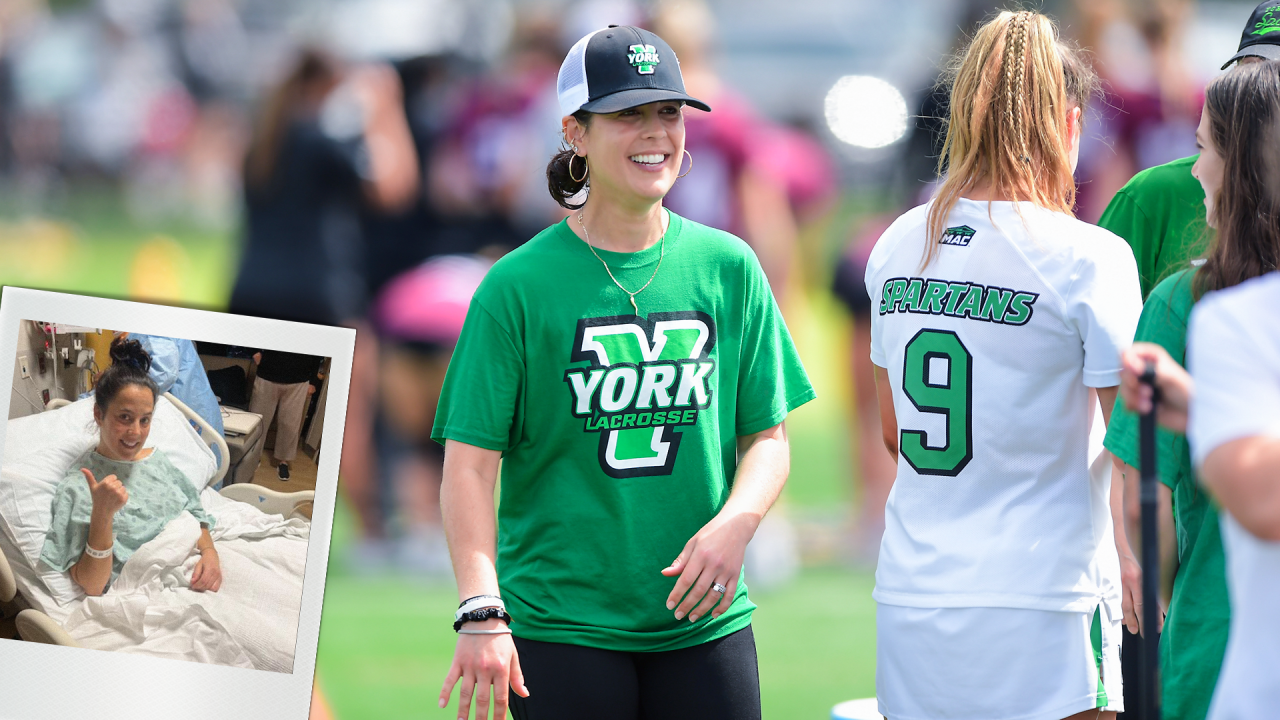Jen Muston isn’t afraid of a challenge.
You can see it by glancing at the York College women’s lacrosse schedule she lines up each spring as the school’s head coach.
The Spartans, a consistent force in the NCAA Division III ranks, annually play top-tier teams such as Franklin & Marshall, Gettysburg, Salisbury and Washington and Lee as part of their nonconference slate.
“She lives for our out-of-conference schedule,” senior defender Nesiah Bertram said. “She does a really good job of making us rise up to the challenge.”
On-field challenges are one thing.
Invisible challenges are another.
That’s what Muston faced for several years with very few people knowing about it.
A former conference player of the year at UMBC, Muston took over as the head coach at York in 2008 but commuted from her home in Maryland until relocating to Pennsylvania in 2017. Part of the transition included finding a new primary care physician. Muston brought her medical records up and her new doctor didn’t like what she saw.
“She said, ‘Those numbers don’t match up with your age and your body makeup. I want you to get this looked at,’” Muston said.
Routine bloodwork led to visiting a specialist and then back to Maryland to consult with doctors at Johns Hopkins. They discovered that Muston had stage four chronic kidney disease and that her kidneys were only functioning at about 30-percent capacity.
She had no obvious symptoms — other than increased fatigue — and there wasn’t much she could do at the time.
“Just leading a healthy lifestyle,” Muston said. “Some medications, just really controlling blood pressure and watching my diet because certain things can affect your kidneys.”
For the first few years, the only people who knew about her condition were her husband, Pat — also a former UMBC lacrosse player — and their parents.
Muston knew she would eventually need a transplant, but her kidneys were functioning well enough that she wasn’t eligible to receive one. Symptoms usually start when kidney function declines to 20 percent or less, at which point a person can join the national waiting list. It was a bit of an agonizing waiting game.
“You just sit and wait,” Muston said. “When you have that hanging over your head, it’s the most amount of stress I’ve ever experienced in my life. You just try to deal with it.”
“As a competitor and as a problem solver, you want to go and attack something,” Pat Muston said. “You want to say, ‘Hey this is the problem. Let’s put everything on the table and let's fix this.’”
But the Mustons could not do that. As much as possible, they tried to live their lives normally.
“We took it serious, but at the same time it really wasn't at the forefront,” Pat Muston said. “It was always kind of in the background. The numbers keep going down and down and down. Then it gets more real.
“The talk got more serious. There were times we would just be sitting there and I would look over to see my wife start crying out of nowhere, like something would trigger something. She's always been an extremely strong person on every front. If she complains that something hurts or that something's bothering her or she cries about something, it’s some next-level stuff.”



























































